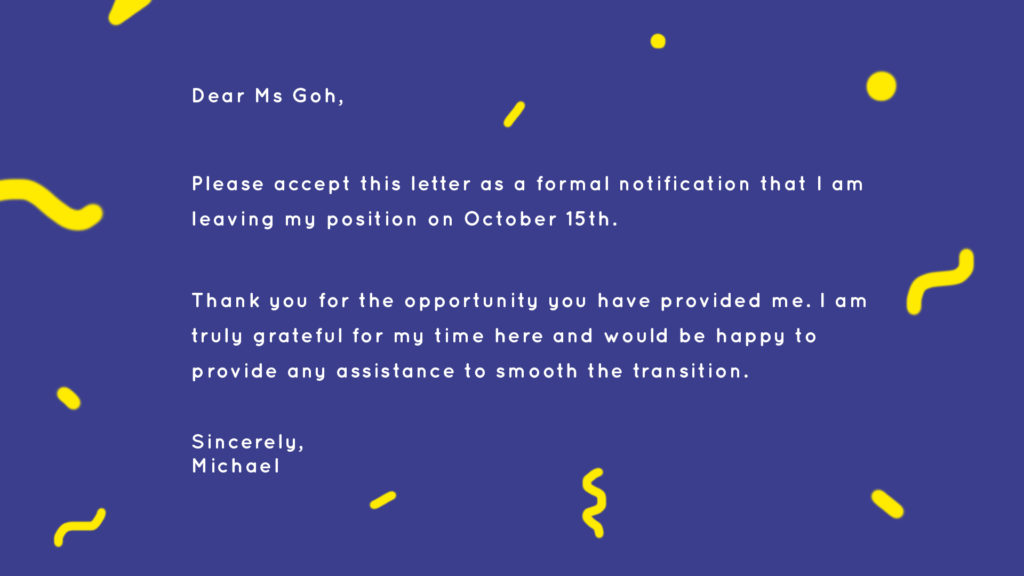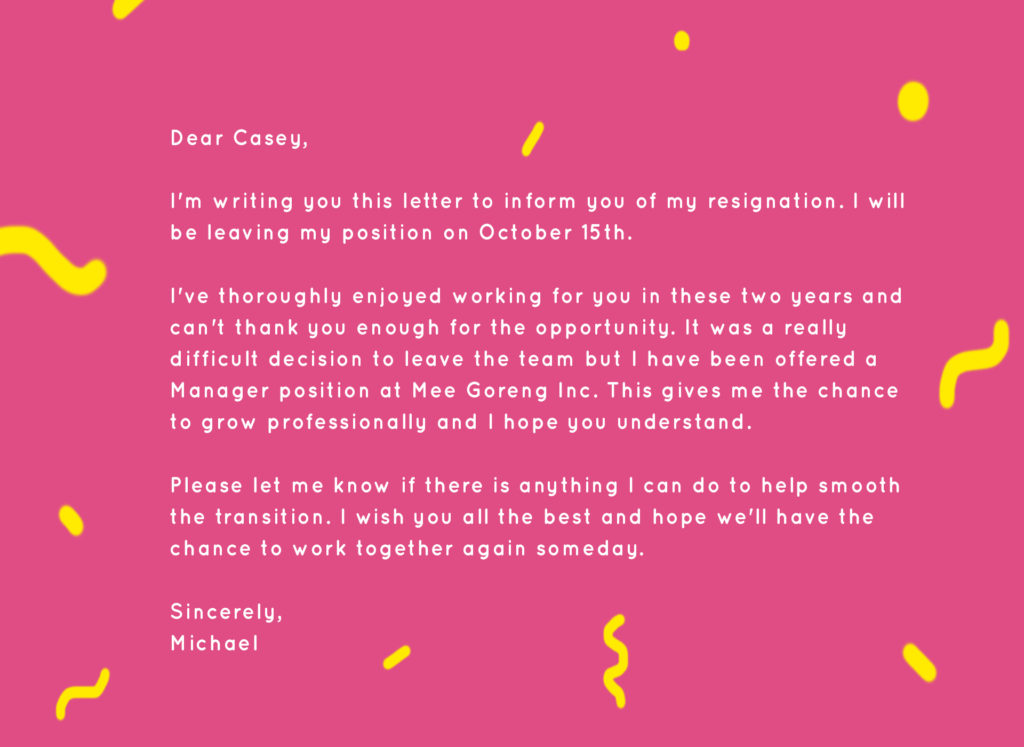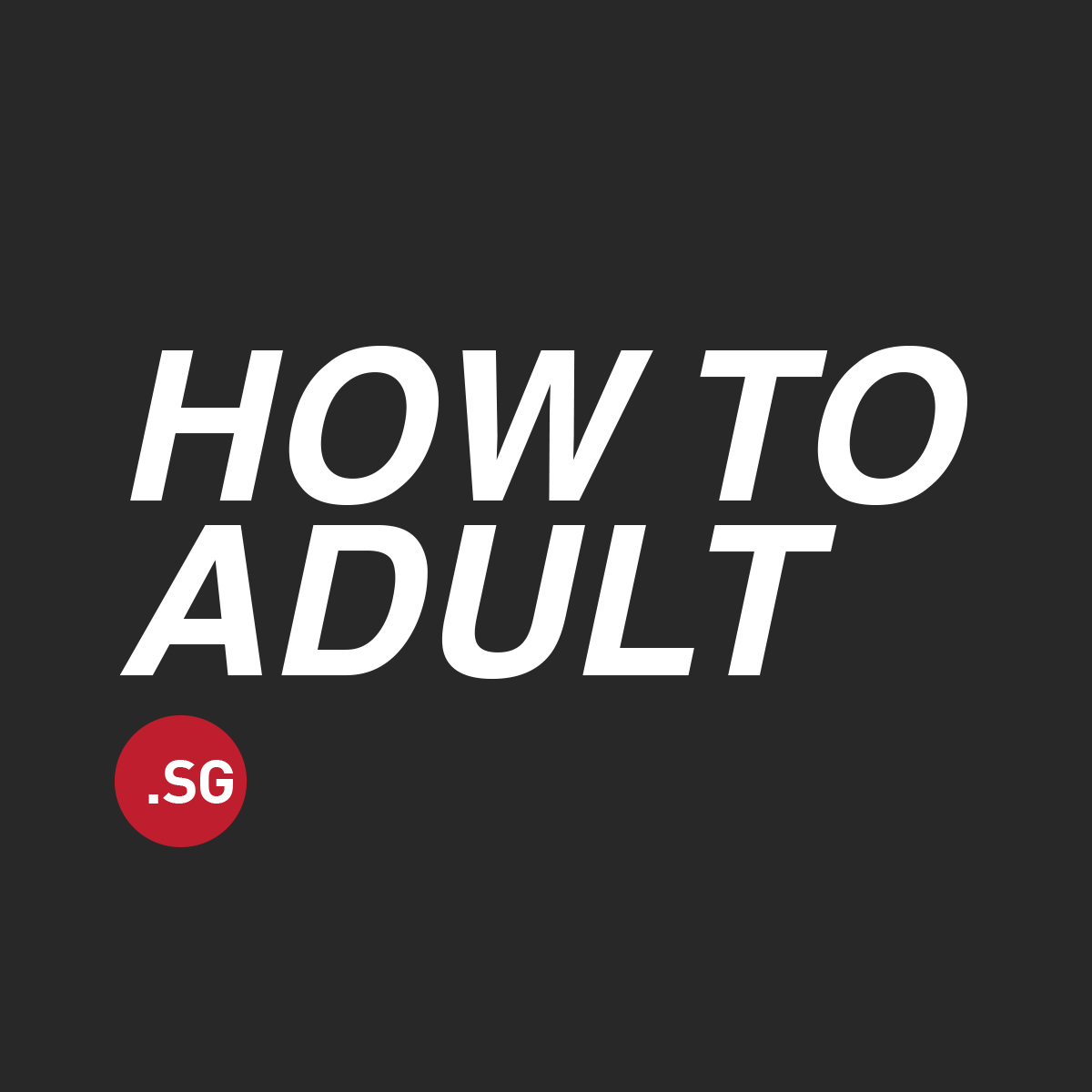Between a million considerations and looming uncertainty, quitting can feel like a high-stakes breakup. And these days, it’s almost inevitable in the process of growth and exposure.
With your financial future and career satisfaction on the line, it’s important to get clarity on whether you really should quit. So in the first part, we will go through some common considerations, before you make the final decision. When you are certain you are quitting, the second part guides you through the resignation process from writing the letter to handing it in.
To Quit or Not to Quit?
There are so many things to think about when reconsidering your job – from pay, company culture, working hours, all the way down to travelling time. How do you even begin to clearly evaluate if your job is worth the stay? To cut through the clutter, we’ve sieved through the common factors and condensed them to these few essential questions:
Is what you are doing getting you to where you want to be in 3-5 years?
At the end of the day, you’re not just working for a paycheck, you’re working towards your future. Is there a promotion in sight that takes you closer to where you’re headed? Even if that’s not the case, are you picking up skills that will help you become who you want to be? It’s important that your goals and values are aligned with your company, or with your boss at least.
If your job is stagnant or derailing you from your mid to long-term goals, then maybe its time to call it quits.
Is your job sustainable?
How are you holding up physically and mentally at your job? There are many ways a job can become unsustainable. A toxic culture and colleagues that you can’t connect with puts a heavy toll mentally. Is your job so stressful that it’s affecting your health? Long travelling time and work hours can also add additional stress to your overall wellness, so take that into account too.
Every job has its own stresses but if you’re on the express lane to burning yourself out, then you might need a change.
Do you have post-quitting plans?
A job can be stressful but not having one can be even more stressful. Do you already have a job or a venture lined up after your exit? If not, then do you have a plan in place that you can set in motion the moment you are free from your job?
While it’s not always necessary to secure a job before quitting, having things planned out significantly reduces your risk and makes it less stressful.
Have you done everything you could?
Quitting shouldn’t be your go-to when things aren’t working out at work. If you feel like you’ve been stagnating, consider asking for more job scopes to broaden your exposure. If the long hours and travelling time is affecting you, maybe a semi remote-working schedule could be worked out. Most working conditions are often negotiable, as long as you’re able to deliver results.
Timing your Resignation
Having made the decision to resign, the next big question is when? Take note of when is the next cycle for bonuses, pay raise and even promotion. If it’s just around the corner, it might be worth tiding it out just a little more. Ideally, you’ll want to start looking for a job, a month or two before the next promotion/bonus cycle happens.
Also, depending on your industry, there may be peak periods for hiring. You’ll want to set your sights on these periods as you’ll have more options available.
Job Interviews while Working?

You won’t want to announce to the entire office that you’re heading off for job interviews and it can be difficult if your job requires you to be in the office most of the time. One way is to let your potential employer know that you are still working and try to schedule your interviews before, after working hours or during lunch hour.
Applying for leave can also be an efficient way to clear out your interviews. Take a few days off work and line up all your interviews within those few days. This way, you’ll be rested and fresh for your interviews and you can clear it all in one go.
Writing your Resignation Letter

You never know when you might run into your boss or colleagues again so the main goal here is to announce your departure amicably and not burn any bridges.
A good resignation letter usually covers these pointers:
Thank your boss – After all, your boss is the one who offered you the opportunity to work here in the first place.
Give a notice period – Depending on the notice period in your contract, make sure you give your boss enough time for a smooth transition.
Explain your reason for leaving – If you are leaving because you hate your workplace, boss or colleagues and do not have a more ‘pleasant’ reason, then maybe it’s best to skip this section. Otherwise, telling your boss why you are leaving is a nice gesture.
Offer to help with the transition – By showing a willingness to help with any transition matters like training your replacement, leaves a good final impression.
While resignation letters follow same-same-but-different structure, the tone can vary depending on how formal your work culture is and how close you are to your boss.
Examples of a resignation letter
Here’s a sample from the formal-not-too-close-to-boss end of the spectrum:

On the informal-BFF-with-Boss end of the spectrum, we have something that looks more like this:

When to Break the News?
You might want to be honest and share your doubts with your boss, early into your considerations. And it might work great if you are close and your boss truly has your best interest at heart. However, sharing too early might also affect your chance for bonuses, pay raise and promotion before you leave.
If you have a new job secured, announce your resignation after you sign your contract. Arrangements can be fickle so treat only your signed contract as confirmation that you have the job. After that, you’ll want to inform your boss as soon as you can so the company has more time to prepare for your transition.
Quitting is a major decision. And you might feel the guilt of ‘disappointing your Boss’ or even be afraid that you’re ditching your colleagues behind. But at the end of the day, jobs are still temporary and it’s the bonds made and lessons learnt that will stay with you. When it’s time to move on, it’s time to move on.


